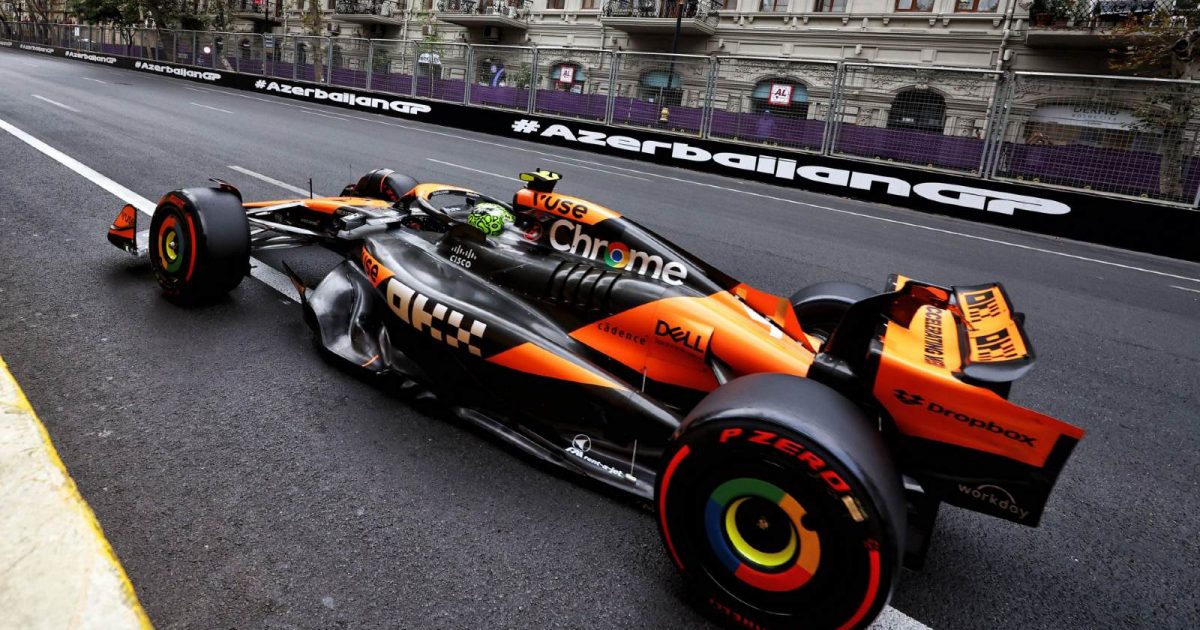
MCLAREN ‘MINI DRS’ UNDER THE MICROSCOPE AS FIA ISSUE ‘DATA REVIEW’ STATEMENT
F1’s governing body, the FIA, has confirmed that it is “currently reviewing data and additional evidence” from the Azerbaijan Grand Prix after McLaren’s so-called ‘mini DRS’ system caught the eye.
McLaren claimed their fourth victory of the F1 2024 season in Baku as Oscar Piastri collected his second career win after overtaking polesitter Charles Leclerc.
FIA issue statement after McLaren MCL38 ‘mini DRS’ catches attention in Baku
Piastri’s triumph saw McLaren take the lead of the Constructors’ Championship for the first time since March 2014, with the team holding a 20-point advantage over Red Bull with seven races remaining.
The behaviour of McLaren’s rear wing caught attention in Baku, with television pictures showing the top element of the wing tilting backwards at speed on the straights.
The function has been described as a ‘mini DRS’, enhancing the car’s MCL38 speed in a straight line by opening up a slot gap in the rear wing.
Explained: McLaren’s ‘mini DRS’ system
👉 McLaren’s ‘mini-DRS’ uncovered: The latest chapter in the great ‘flexi-wing’ debate
👉 ‘Papaya rules’ explained: What are McLaren instructing their drivers with new phrase?
Flexi wings have increasingly come under the microscope as the F1 2024 campaign has developed, with the FIA fitting cameras to a random selection of cars at July’s Belgian Grand Prix in order to better understand the flexibility of front wings.
The McLaren rear wing passed mandatory deflection tests in the pit lane in Baku, confirming the device is within the rules, yet it uncertain whether the team’s solution falls under the FIA’s guidance for acceptable flexing.
Ahead of this weekend’s Singapore Grand Prix, the governing body confirmed that it is still in the process of analysing “data and any additional evidence” from the Azerbaijan GP.
And it refused to rule out taking action on individual teams, and introducing rule changes, during the current season.
A statement read: “The FIA is closely monitoring the flexibility of bodywork on all cars and reserves the right to request teams to make modifications at any point during the season.
“However, if a team successfully passes all deflection tests and adheres to the regulations and technical directives, they are deemed to be in full compliance and no further action will be taken.
“The FIA is currently reviewing data and any additional evidence that has emerged from the Baku GP and is considering any mitigating measures for future implementation.
“This is part of the standard process when scrutineering technical legality and the FIA retains the authority to introduce regulatory changes during the season if required.”
Read next: McLaren waiting to spring FIA ‘surprise’ with next raft of MCL38 upgrades
2024-09-19T08:55:02Z dg43tfdfdgfd